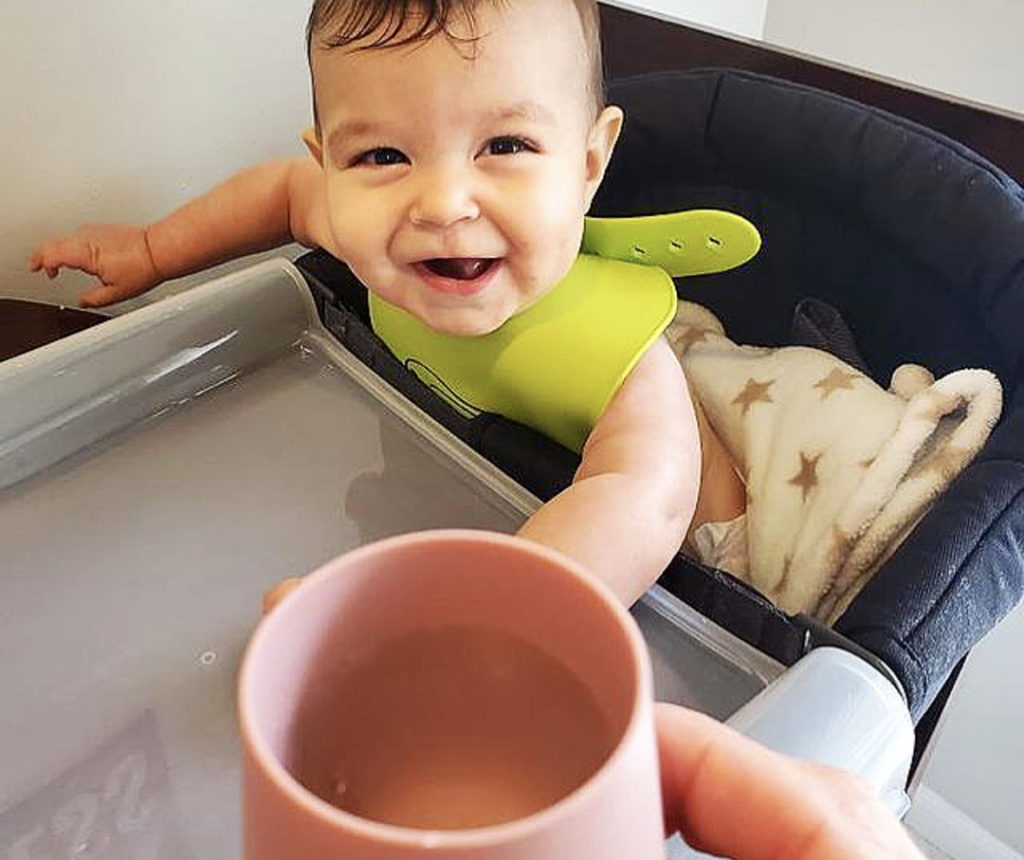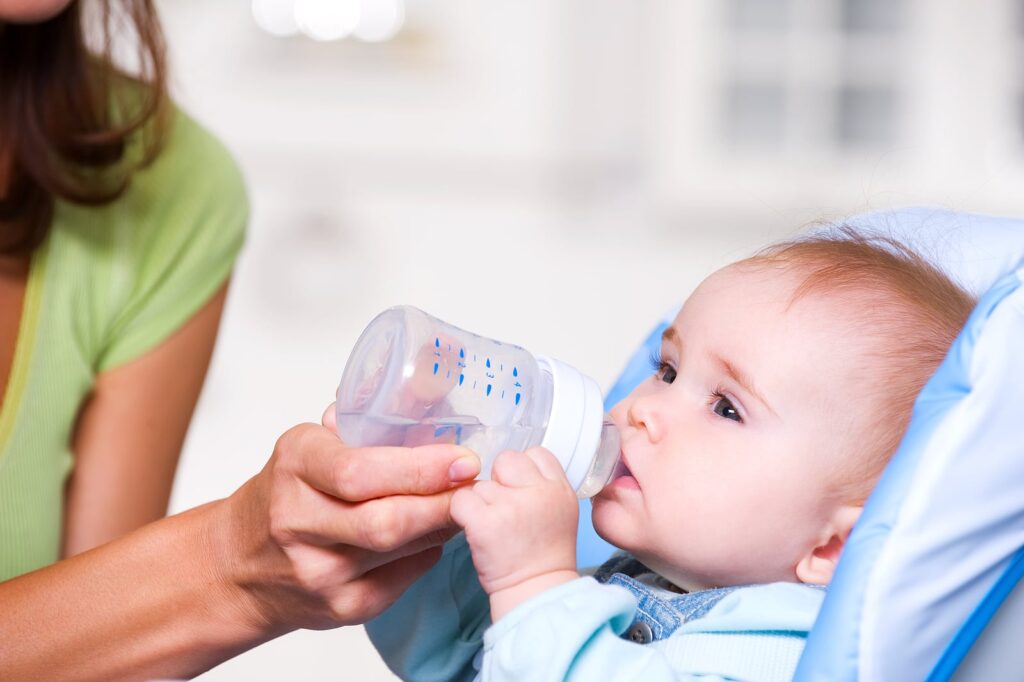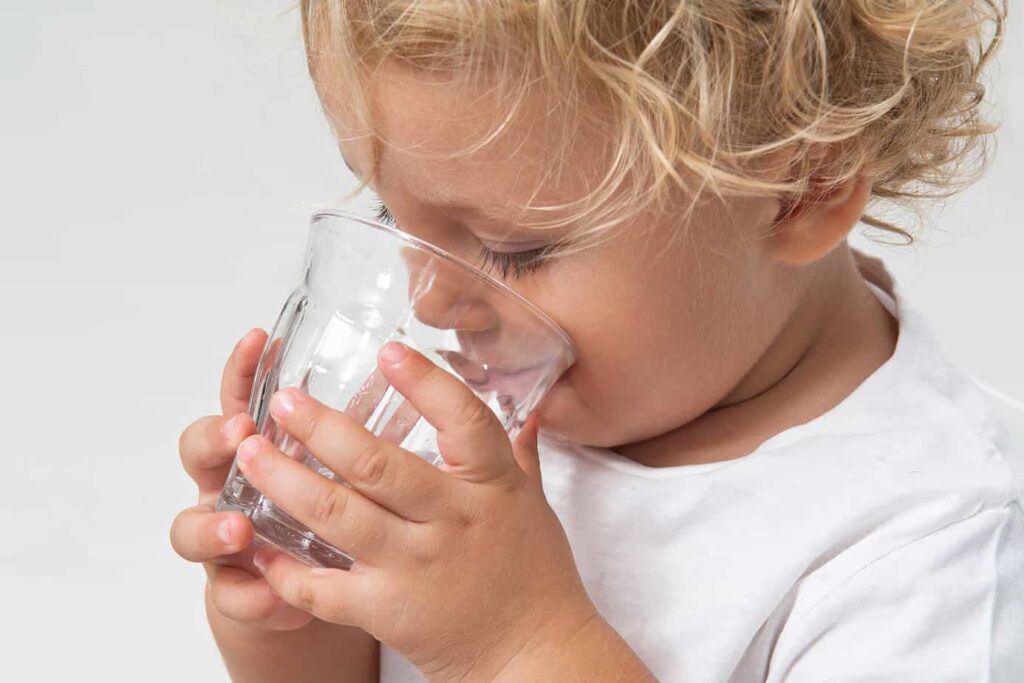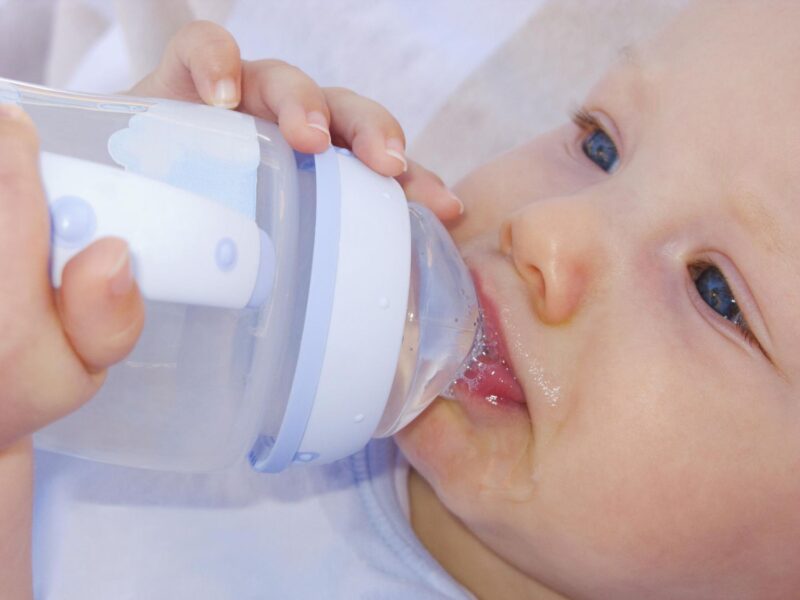Babies under six months old typically don’t need additional water beyond what they get from breast milk or formula. Breast milk and formula provide all the necessary hydration for infants during this period. Introducing water before six months can potentially interfere with their intake of breast milk or formula, which are crucial for their growth and development.
However, if your baby seems particularly thirsty on a hot day or during illness, it’s best to consult a pediatrician before offering water. After six months, when solids are introduced, you can gradually introduce small sips of water alongside solids, but breast milk or formula should still be the primary source of nutrition.
How do infants under six months hydrate?

Infants under six months primarily hydrate through breast milk or formula. Breast milk or formula provides all the necessary hydration and nutrients for infants during this stage of development. It’s essential to ensure that infants are receiving adequate breast milk or formula to maintain proper hydration, as they are not yet ready for water or other fluids.
Breast milk and formula are tailored to meet the specific hydration and nutritional needs of infants, providing them with the hydration and nutrients they require for healthy growth and development.
What are the risks of giving water to infants?

Giving water to infants under six months of age can pose several risks:
Water intoxication
Infants have a limited ability to process excess water due to their underdeveloped kidneys. When too much water is consumed, the kidneys may struggle to excrete it efficiently, leading to an imbalance of electrolytes in the blood.
This imbalance can result in water intoxication, where the excess water dilutes the concentration of electrolytes, particularly sodium, in the bloodstream.
Low sodium levels (hyponatremia) can lead to symptoms such as nausea, vomiting, headache, irritability, seizures, and in severe cases, brain swelling and death.
Nutrient dilution
Breast milk and formula are specifically designed to provide the optimal balance of nutrients required for infant growth and development.
When infants consume water instead of breast milk or formula, they may fill up their stomachs with a substance that lacks essential nutrients like proteins, fats, vitamins, and minerals.
This can lead to decreased intake of breast milk or formula, resulting in inadequate nutrition and potential growth and developmental issues.
Electrolyte imbalance
Electrolytes, such as sodium, potassium, chloride, and bicarbonate, play crucial roles in maintaining the body’s fluid balance, nerve function, and muscle contraction.
Breast milk and formula contain the appropriate balance of electrolytes for infants’ needs. Introducing water, which lacks these essential electrolytes, can disrupt the delicate balance within the body, potentially leading to electrolyte imbalances.
These imbalances can have serious consequences on various bodily functions, including heart rhythm, nerve signaling, and fluid balance regulation.
Reduced milk production
Breast milk production operates on a supply-and-demand basis. When infants breastfeed frequently, it signals the body to produce more milk to meet their needs. Introducing water to infants can reduce their appetite for breast milk or formula, resulting in fewer feeding sessions.
This decreased demand may signal the body to produce less breast milk, potentially leading to a decrease in milk supply over time. In formula-fed infants, offering water instead of formula can lead to inadequate caloric intake, hindering proper weight gain and growth.
Increased risk of infections
Water can serve as a medium for bacterial growth, especially if it’s not properly sterilized or contaminated. Infants’ immune systems are still developing, making them more vulnerable to infections.
Giving water to infants, particularly if it’s not sterile or if proper hygiene practices are not followed, can increase the risk of gastrointestinal infections caused by bacteria such as E. coli, Salmonella, or Giardia.
These infections can lead to symptoms such as diarrhea, vomiting, fever, and dehydration, which can be particularly dangerous for young infants.
What are signs of dehydration in infants?
Recognizing the signs of dehydration in infants is crucial for prompt intervention and proper management. Here are some common signs to watch for:
- Not peeing as much as usual
- Pee is darker yellow
- Dry mouth and lips
- Soft spot on the head looks sunken
- Eyes look sunken
- Less tears when crying
- Baby is fussy and cranky
- Baby seems tired and not moving around much
- Breathing and heartbeat are fast
- Hands and feet feel cold
If you see these signs, it’s important to get help from a doctor right away!
How to introduce water to infants over six months?

Introducing water to infants over six months can be done gradually and safely. Start by offering small amounts, like a few sips, from an age-appropriate cup or sippy cup with a soft spout. Begin during meal times, alongside solid foods, to make it a part of their routine. Ensure the water container is clean and safe for infants to drink from, using BPA-free cups or bottles.
Make the water appealing by offering it at room temperature or slightly chilled, without adding any flavorings or sweeteners. Be patient and encouraging, demonstrating drinking from the cup yourself and offering praise.
Encourage consistent intake throughout the day, especially in warm weather or during physical activity, to keep them hydrated. Monitor their intake to avoid excessive consumption, which can reduce their appetite for breast milk or formula.
Gradually increase the amount of water offered as they grow older, but continue to prioritize breast milk or formula until they are ready to transition to cow’s milk around the age of one. If you have any concerns, consult with your pediatrician for personalized guidance.
Final Words
It’s important to remember that babies under six months usually get all the hydration they need from breast milk or formula. Giving them water during this time might not be necessary and could even cause problems. If your baby seems dehydrated or you’re unsure about their hydration, it’s best to talk to a doctor. As babies start eating solid foods, you can slowly introduce a little water, but still, breast milk or formula should be their main drink. Always listen to your doctor’s advice when it comes to keeping your baby healthy and hydrated.



